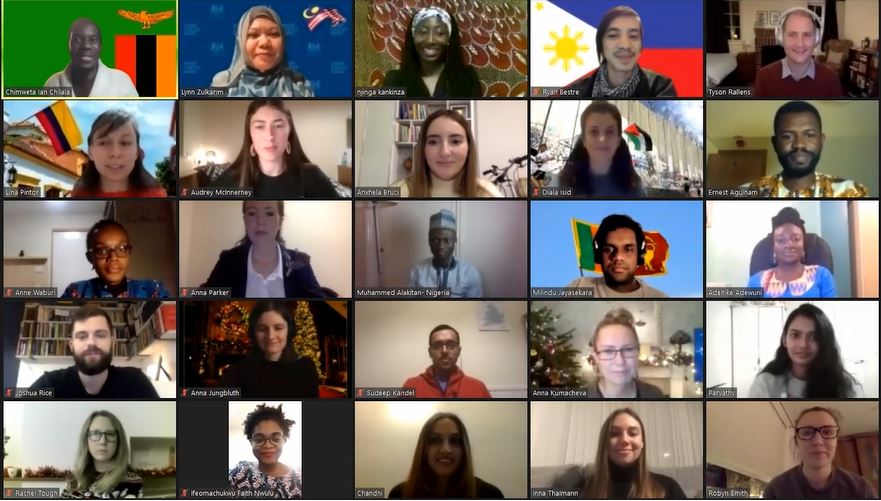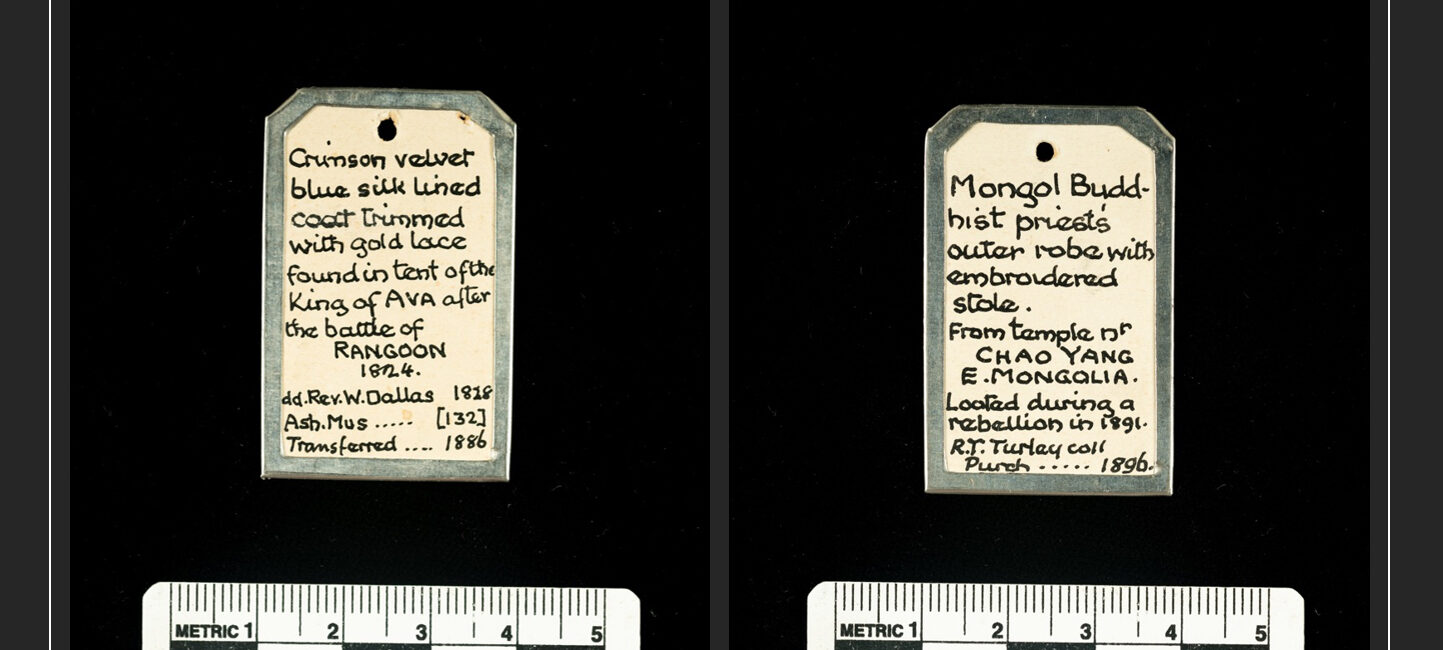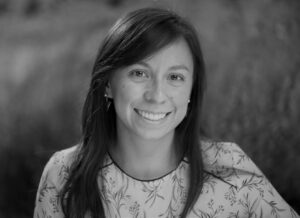2020 was the year that everything changed, and the Commonwealth and International Students Christmas Conference at Cumberland Lodge was no exception. Having taken place at Cumberland Lodge every year since 1947, the conference had to be transformed into an online event due to the COVID-19 pandemic restrictions.
The longest-standing tradition at Cumberland Lodge was, for the first time, virtual, free to attend and open to all international students studying in the UK, alumni from the Emerging International Leaders programme, and all Cumberland Lodge Fellows.
Around 30 international participants, from many British universities, came together for two days to discuss ‘decolonisation’ in British education and museum, and to keep the conference’s festive traditions alive – the international quiz, the talent show and the carol service – albeit in a different format.
On Friday night, after a warm welcome from Dr Ed Newell, Chief Executive at Cumberland Lodge, participants settled in by testing their general knowledge in the international quiz, which included multiple rounds, ranging from travel to food and drink.
We then recorded a Christmas greeting for Cumberland Lodge Patron, Her Majesty The Queen, and the Royal Chapel congregation in Windsor Great Park, with special messages from participants representing each continent – including Father Christmas from Antarctica (aka Rob, the Head Chef!). We also had a participant who was joining us from Bethlehem. I represented South America and it was great to be involved in adding an international touch to the greeting.
Decolonisation of history curriculum and museums
Back to the theme of the conference, the second session on Saturday morning revolved around decolonisation in schools and cultural institutions, such as museums. We heard from three guest panellists:
- Lynda-Louise Burrell – Creative Director of Museumand (The National Caribbean Heritage Museum) and Executive Director of the Black History Month magazine and website
- Beki Martin – Executive Director of Facing History and Ourselves (UK), a non-profit organisation that challenges teachers and students to tackle hatred and bigotry
- Marenka Thompson-Odlum – Research Assistant for the Labelling Matters Project at the Pitt Rivers Museum, part of the University of Oxford, and a doctoral candidate at the University of Glasgow.
Firstly, Beki defended the importance of decolonising teaching and pedagogy to improve awareness about the history and legacy of the British Empire. She argued that adding diverse and inclusive accounts of the colonial and Black history of the UK will play an essential role in promoting equity and justice in society.
Then, Lynda argued that museums need to diversify their perspectives on history by making room for different voices that are an integral part of UK history, yet widely ignored. She said they should play a role in creating more egalitarian societies, by commemorating the contribution of marginalised groups to the nation’s history.
Next, Marenka talked about the ‘Western bias’ in museums and the role of curators in offering more nuanced interpretations of collections. Her work, for instance, exposes the euphemistic or one-sided language within museum spaces and the need to challenge those narratives by bringing other voices to share their stories about objects in collections.
An eye-opening discussion in many ways, this session highlighted for me the role of education – whether it be through teaching history, literature or medicine – and cultural institutions, in subverting traditional narratives to help create a more egalitarian society.
Looking at Africa from a different perspective
Expanding on the same theme, but this time with a festive spin, the third session took the format of a presentation and Q&A session with Dr Gus Casely-Hayford OBE, Director of the Victoria & Albert Museum East.
In his talk, ‘Looking for Baltazar’, Gus used the life-story of Balthazar, the third Wise Man from the biblical Christmas story, and his representation in Medieval and Renaissance art, to illustrate the change in our perceptions of Africa after colonialism and the slave trade took over the world.
Once seen as one of the key players in an interconnected world, Africa is now relatively excluded from the global spotlight. This realisation, Gus argued, should prompt us to question current narratives about Africa and disentangle their relationship with colonialism.
Talent show and carol service
After those thought-provoking sessions, the conference continued with a virtual talent show on Saturday evening, where we enjoyed music, storytelling and short films and got to know our fellow international student participants.
The next morning, we attended the live-stream of a virtual carol service, which included our pre-recorded greeting, for the Royal Chapel of All Saints’ congregation who live close to Cumberland Lodge. On that festive note, the 73rd edition of the conference came to an end.

Final reflections
2020 will undoubtedly remain in our memories as the year in which we witnessed the death of George Floyd in the USA and saw the start of the COVID-19 pandemic. Both were pivotal events that were reflected in this conference. We had a chance to further discuss racial inequalities and narratives from the British colonial past, but sadly we had to experience the conference miles apart from one another.
As different as it was, a message of shared humanity emanated throughout the two days and the conference fulfilled its goal of gathering young people from countries around the world to have meaningful discussions together.


